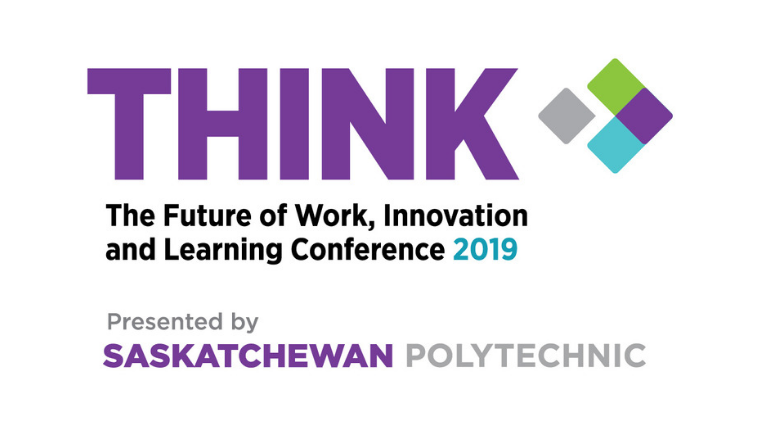By Dr. Larry Rosia, president and CEO
Have you given much thought to the future of work? Specifically, how jobs and, with it, our world will change over the next five, 10 or 20 years?
I have.
Let us look at a few predictions. The first is from Linda Nazareth, an economist and futurist who wrote Work Is Not a Place: Our Lives and Our Organizations in the Post Jobs Economy. Nazareth, a senior fellow at the Macdonald-Laurier Institute, says we are headed into a future where the world of work “will be all about fragmentation, where you might get paid by one employer for a bit of work or by many employers for lots of bits of work.”
In a nutshell, workers will engage in a series of “gigs.” The trend, she says, is well underway: “The gig economy is alive and well, and the work world is only going to get more gig-ified as we move forward.”
For many, this is a radical shift. It was not that long ago that most of us assumed that once we began working our careers—and in many cases, the organizations we worked for—would not change. Twenty-five or 30-year careers with one employer were not unusual.
None of this is true anymore.
Let us set aside this notion of the gig economy momentarily and consider another prediction, this time involving technology—and, after all, you cannot really discuss the future of work without an inclusion of technology.
Dr. Helen Papagiannis, an expert in augmented reality (AR), says innovators are beginning to create compelling and contextually rich applications that enhance a user’s everyday experiences through the use of AR.
Papagiannis, who writes and speaks extensively about the subject, maintains that AR not only amplifies human intelligence, but that when paired with artificial intelligence (AI), could improve human health in ways we could only imagine a few years ago. For example, imagine how digital smell and taste could augment the way you share and receive information.
AR, AI, robotics, machine learning, autonomous vehicles and a vast array of other technological advancements will change our world—and the way we work—in incredible ways.
So, let me ask: Are you ready? Or perhaps a more realistic question is, what have you been doing to get ready?
If you answered “no,” “nothing” or “very little,” you are not alone. But that is okay—Saskatchewan Polytechnic can help.
On Thursday, May 23 at Evraz Place in Regina we will host THINK: The Future of Work, Innovation, and Learning 2019. This annual conference will explore how work, jobs and learning are changing, the factors and forces behind these changes, and the solutions to meet the challenges and opportunities ahead.
It is important to stress opportunities. Yes, there is uncertainty ahead. Entire industries may disappear, and with them jobs. However, let us not forget than humans are tremendously resilient, adaptable and innovative. New and incredible companies and jobs will emerge—but it will require that we constantly learn.
Still, it helps to have the right context and accurate information to create workable strategies to meet this brave new world. This is why you should attend on May 23.
I am pleased that Linda Nazareth and Dr. Papagiannis have agreed to share their vision and offer insights with those attending. Joining them will be Jeff Selingo. Named one of LinkedIn’s “must-know influencers” of 2016, Jeff is a contributing writer at the Washington Post and The Atlantic, and a special advisor at Arizona State University (ASU), where he is the founding director of the Academy for Innovative Higher Education Leadership, a partnership between ASU and Georgetown University. He is also the author of three books, the newest of which, There Is Life After College, is a New York Times bestseller.
Also joining us will be Andrew Schrumm, Senior Manager, Research, Office of the CEO at RBC. Schrumm is research lead for RBC’s thought leadership, examining how Canada can enter the 2020s as a diverse, innovative and sustainable nation. He manages RBC’s future skills research project that is advancing thinking on skills-based job mobility, lifelong learning and the potential of automation in our economy.
As the President and CEO of Saskatchewan’s largest post-secondary institution, I deeply understand first-hand how important it is to prepare for the future. This was a driving force in the decision to create the THINK conference.
I invite you join us on May 23. For further information, please check out think.saskpolytech.ca
But do not wait too long to register. The future waits for no one.


